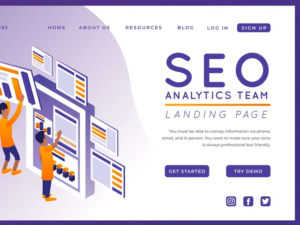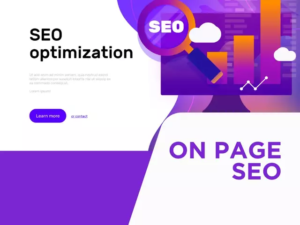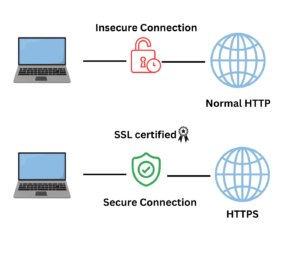Backlinks, also referred to as inbound or incoming links, are essential to the success of any Search Engine Optimization (SEO) strategy. The concept was first introduced as a primary metric back when Google was just an emerging search engine, and while it’s still a crucial ranking factor, the importance of backlinks has shifted over the years.
Today, backlinks are more influential for their quality over quantity. With a smarter algorithm, incoming links from relevant, high-authority websites are prioritised as a ranking factor, while spamming links, can hurt your online presence. If you’re eager to learn more, we’ll break it down further in the post below.
Looking for a web developer in Brisbane? Contact us at Web9.
What are Backlinks?
Backlinks are website links attached to a text on a blog post that leads users from one site to another. In SEO, backlinks are seen by the algorithm as endorsements or votes of confidence from one site to another.
Ultimately, the goal, when it comes to backlinks, is to have established or authoritative websites connect to your content or page. For example, an inbound link from an established news site or industry expert adds more value than those from a random website without a solid following.
Additionally, it also makes more sense to the search engine algorithm if the websites linking to your page tackle a subject that’s related to yours. This helps signal that the links are organic. Otherwise, the links will just be ignored by Google and deemed irrelevant as a ranking factor.
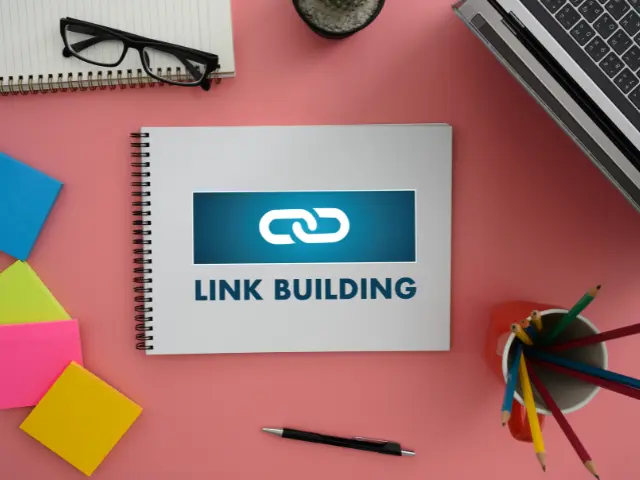
What are the Different Types of Links?
Backlinks
As we’ve shared, backlinks are leads from other blogs or websites that point to your site. These links can help establish your content and page as valuable to specific user queries, ideally, the ones you’re also ranking for.
The best backlinks to get are from reputable or authoritative websites can boost your search engine rankings.
Notably, experts also classify different types of backlinks depending on their purpose or how they are deployed.
For example, an editorial backlink—usually integrated into the content of the other website— is a link that directly cites your content or web page as a source, which likely marks your content as valuable for that topic.
Some backlinks can also be acquired through guest blogging, a prominent link-building strategy.
When proposing a guest post to another website, you can ask permission to include a do follow editorial backlink that points to your website. Ideally, of course, you would want to exercise this on websites that have good domain authority.
Outbound Links
On the contrary, outbound or external links are hyperlinks from your page that point to another website. You can optimise your outbound links by making sure that you are providing references to authoritative sources.
However, be mindful that excessive or irrelevant outbound links can have the opposite effect, so they should only be used when necessary.
Internal Links
Internal links connect your web pages to each other. They are primarily used for organising content, and helping users navigate your website more efficiently.
Internal links are also critical to the link-building strategy since they can enhance the user experience. Additionally, internal links are able to help search engines understand the structure of your website so that they can determine the relevancy or hierarchy of your content.
Nofollow Links
Nofollow links contain a special HTML attribute (rel=“nofollow”) that signals search engine algorithms not to pass link equity to the linked page. Hence, if another site links to yours, but decides to tag it as “nofollow”, then you’re basically not getting any favours in the context of SEO.
Before you get upset, there are practical uses for nofollow links, like when you’re linking to an ad or page that’s only meant for profit, or generally inconsequential to user intent.
Furthermore, if you’re eager to link a low-quality website or page to your post, but don’t want the search engines to acknowledge that connection, then you can use a nofollow link instead.
Dofollow Links
Dofollow links or follow links are hyperlinks that are acknowledged by search engines. For most websites, links are set to do follow by default. Nofollow and dofollow backlinks are also considered to be among the types of backlinks in SEO.
Anchor Links
Anchor links are used for page navigation. They help users jump from one section to another by simply clicking the link. For example, a post that has a table of contents can use anchor links to help take users to a specific header or subject. Thus, enhancing the user experience.

Why are Backlinks important?
Acquiring high-quality backlinks is a core SEO strategy. It’s especially valuable for businesses who are just looking to just establish their online presence and authority over their domain.
Since you can’t outright tell Google and other search engines that your content is relevant and trustworthy, you have to do it with SEO. And backlinks have always been one of the reliable practices used to achieve this goal.
If you need to map out or review your SEO strategy, you can seek a free assessment of your business’s online presence and SEO standing with Web9, an award-winning SEO agency.
Are All Backlinks Valuable for SEO?
As essential as they are to SEO, not all backlinks are good.
Some links can be deemed irrelevant if they don’t have a clear connection to your content or web page. You also can’t just add more backlinks to your site in order to accelerate results.
Google prioritises organic search engine traffic, and spamming backlinks is not a good signal to send to its web crawlers. You always want high-quality backlinks and referral traffic going back to your website.
In addition, broken links can also hurt your site. So, you should use proper SEO tools and practices to ensure links are redirected accordingly, especially if those pages have inbound links attached to them.
Even better, it would help if you had a proper broken link-building strategy, which generally means contacting web admins to help you update the dead links that connect to your website.

What Makes a Good Backlink?
A good backlink comes from authoritative and relevant sources. In other words, these are brands or websites that are trusted in the industry and have good search engine ranking themselves.
From a technical standpoint, you’d also prefer backlinks that use anchor text relevant to the page it’s linking to, and appear in the main body of the post, instead of sidebars, footers, and comment sections.
Notably, backlinks that are earned as a result of high-quality content are something you should always strive for.
What Makes a Bad Backlink?
Backlinks that are not organic (paid/schemed) are against search engine guidelines. Hence, this can backfire on your SEO efforts when detected by search engines.
Low authority or spammy sites are also a no-go for link building. These sites bring no value to your website and are often ignored by Google’s ranking algorithm for that matter. Likewise, irrelevant sources that have no clear connection to your topic or niche should be avoided.
Broken links must also be kept in check as they can impact SEO and user experience.
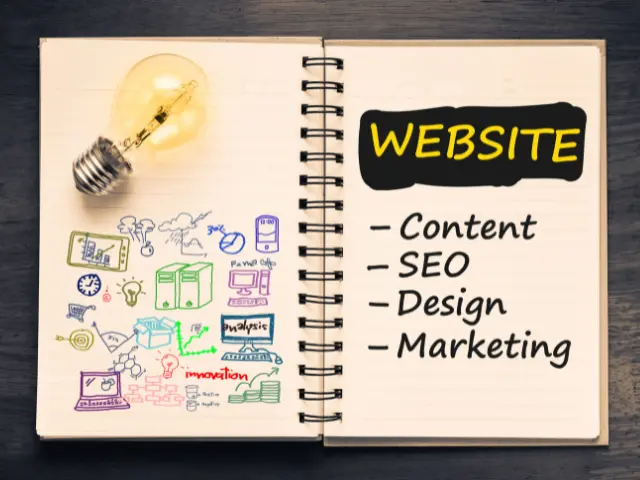
Summing Up
While link-building opportunities can be consolidated into just one aspect of a holistic SEO strategy, this practice is very much essential to the continued success of your SEO efforts. Therefore, a sustainable approach and structure can go a long way to empower your business as it scales and expands its online presence.
If you’re looking for a personalised action plan to link building and SEO for your business, we encourage you to book a free SEO assessment with Web9 to kickstart a professional SEO campaign for your brand or website.


